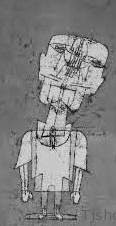a classical anthropic Everett model
"..the only kinds of entities we know for sure to be
real are our mental feelings and perceptions (including dreams). The material
world in which we have the impression of living is essentially just a theoretical
construct to account for our perceptions."
This was not written by Ernst Mach but is from a remarkable paper by Brandon Carter, dealing with the classical limit of the Everett many worlds interpretation.
"Assuming ... that mental processes have an essentially
classical rather than quantum nature, this essay has the relatively modest
purpose of attempting to sketch the outlines of a simpler, more easily accessible, classical unification ... as an approximation to a more fundamental quantum unification that remains elusive."
As every other many worlds interpretation, it struggles with the issue of probabilities and proposes a solution "based on the use of an appropriate anthropic principle in conjunction with the Everett approach...".
I really like the way the problem is posed, but I don't find the answer very convincing [x]. If one acknowledges our perceptions as being necessarily
classical realities, does Bohr's interpretation of quantum theory (or something similar) not make much more sense?
You, as a sentient being with q=1 (or as just another one of my theoretical constructions), be the judge of that...
[x] One problem I have with it (p.6ff) is this: Once we assume that the outside world is only my theoretical construct, how can the number of sentient beings (which are only theoretical constructs as well) make a difference to the calculated probabilities? Also, would the anthropic argument not indicate that it
is always more likely to survive a certain situation than to be killed?
Subscribe to:
Post Comments (Atom)

3 comments:
>>(or as just another one of my theoretical constructions)
There isn't anything in his idea that prevents one of your theoretical constructions from existing in some way that effects a feeling (reality) in your brain is there?
No, but he could/should use Occam's razor ... why introduce the additional hypothesis of an external reality if one can do without?
But as I wrote in the footnote, I doubt his solution actually works and therefore I think something like Bohr's interpretation would be much more economic (to use one of Mach's favorite expressions).
In the end the hypothesis of an external reality simplifies certain issues significantly (i.e. I am similar to other people and living things in general) - otherwise I would have to deal with the fact that I am very different from the theoretical constructs otherwise known as people.
to be more explicit: His example works because there is only 1 bullet and the probability to be killed is only 1/5 which matches with his anthropic estimate.
However, if there would be 4 bullets the conventional probability that I survive would only be 1/5 , but he would still calculate a much higher probability for survival, because in the case I survive the 'sentient world line' would be far longer than in the case(s) where I kill myself.
In other words his explanation confirms quantum immortality in the classical limit and I think this is absurd.
But of course, one could argue, if everything is indeed my own theoretical construct then I cannot kill myself (how could a theoretical construct generated by myself end me?)
Post a Comment